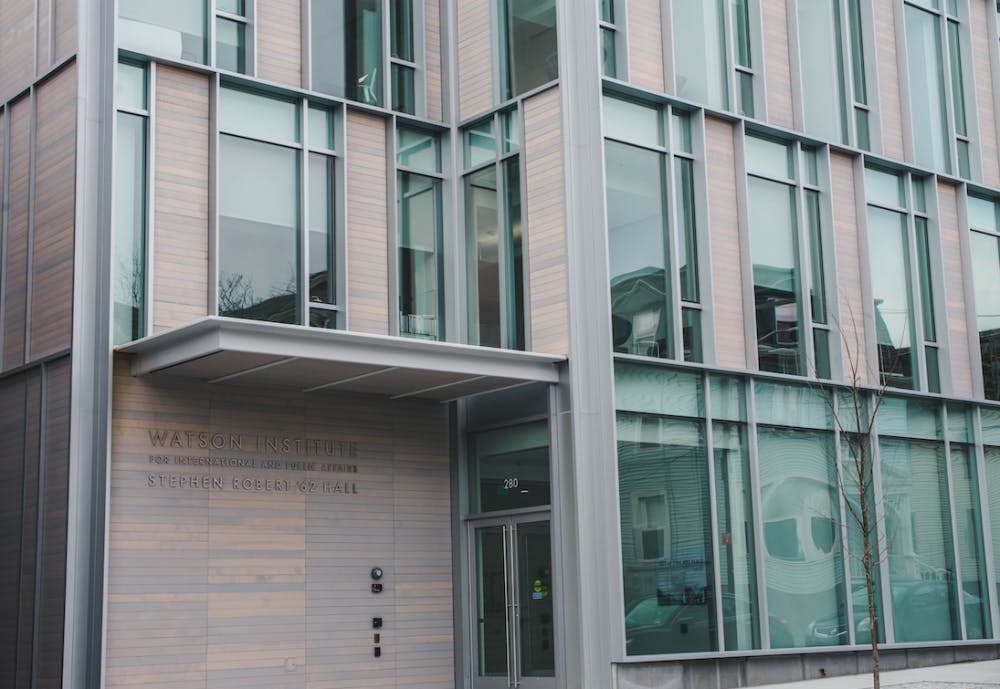Director of the Watson Institute for International and Public Affairs Edward Steinfeld P’20 presented a draft proposal that would combine the Institute’s three concentrations — development studies, international relations and public policy — at yesterday’s College Curriculum Council meeting. The CCC — a group of students, faculty and administrators that oversees the University’s curriculum — also evaluated an internal review carried out by the Anthropology Department.
A committee of Watson faculty members created the draft, which proposed creating a single “International and Public Affairs” concentration with a common foundational core of courses and specialized tracks which would culminate in a final project in academia or the real world.
The Watson committee began work on the proposal after an April 2018 report from the Office of the Dean of the College recommended combining the concentrations into one concentration with two tracks, The Herald previously reported. The original report was met with mixed reviews from students and faculty, and the Watson Institute has since worked to develop its own proposal for changes to its concentrations.
At two town hall meetings held Oct. 16 and 23, the Watson Institute learned that “students don’t want to be treated as Watson concentrators but rather development studies or public policy concentrators,” Steinfeld said. But the Watson Institute “recognizes that there are overlaps between concentrations.” Through a common foundational core and specialized tracks, the Watson Institute hopes to “preserve a lot of sides of the three concentrations” while still maintaining an interdisciplinary approach to learning about “social science, inquiry and action from both a political and social angle,” Steinfeld said.
Multiple specialized tracks have been proposed, including security, development, and governance and policy, each of which is meant to offer a “place of specialization for students,” Steinfeld said. Each specialization would culminate in a project, such as a thesis, a capstone or a “practically-oriented project,” like an in-depth government policy draft, which would be a new option for Watson concentrators.
“Students need to learn how to put different conceptual efforts into practical use,” Steinfeld said.
Current Watson Institute concentrators will not be required to adhere to these new requirements if they are implemented. Instead, there would be a “multi-year transition where students would be able to choose” between the old and new requirements, Steinfeld said. The Watson Institute is currently preparing an abbreviated memo for students, which they hope to release “within the next few weeks,” he added.
CCC members discussed the possibility of making the concentration’s foundational core courses prerequisites for upper-level courses in the specialized tracks. While Steinfeld was “open to the idea,” he prefers “to guide (students) as much as possible” without making them beholden to a specific course order. He hopes the foundational core will “really allow for (first-years) and sophomores to explore what a Watson concentration is about” before deciding on a specialized track.
After Steinfeld’s presentation, Chair of the Anthropology Department Daniel Smith and Associate Professor of Anthropology Andrew Scherer spoke before the CCC to discuss a review of the anthropology concentration, the first in over ten years.
Similar to the changes recommended in the Watson’s draft report, the Anthropology Department proposed creating five tracks for concentrators, including a medical anthropology track, an idea that the department has been discussing for years, Scherer said. The creation of tracks will “sharpen students’ specific interests” within anthropology, he added.
“One of the challenges we have in the department … is that it’s possible for students to go through a lot of classes that are not with just anthropology concentrators,” Smith said. But, through the creation of tracks, “students with like-minded interests will be more likely to take classes together.”
A general anthropology track, which would allow more flexibility for double concentrators, was also suggested.
“I believe that there are students out there that would benefit from (studying) anthropology, if they only knew” what the department had to offer on topics such as sociolinguistics, Scherer said. “Hopefully, students will discover that CLPS isn’t the only option” for studying anthropology, he added.
“We don’t want to poach students from other concentrations,” Scherer said. Rather, these changes will “stimulate the flow of students between departments,” Smith said, helping students decide which concentration is best for them.





